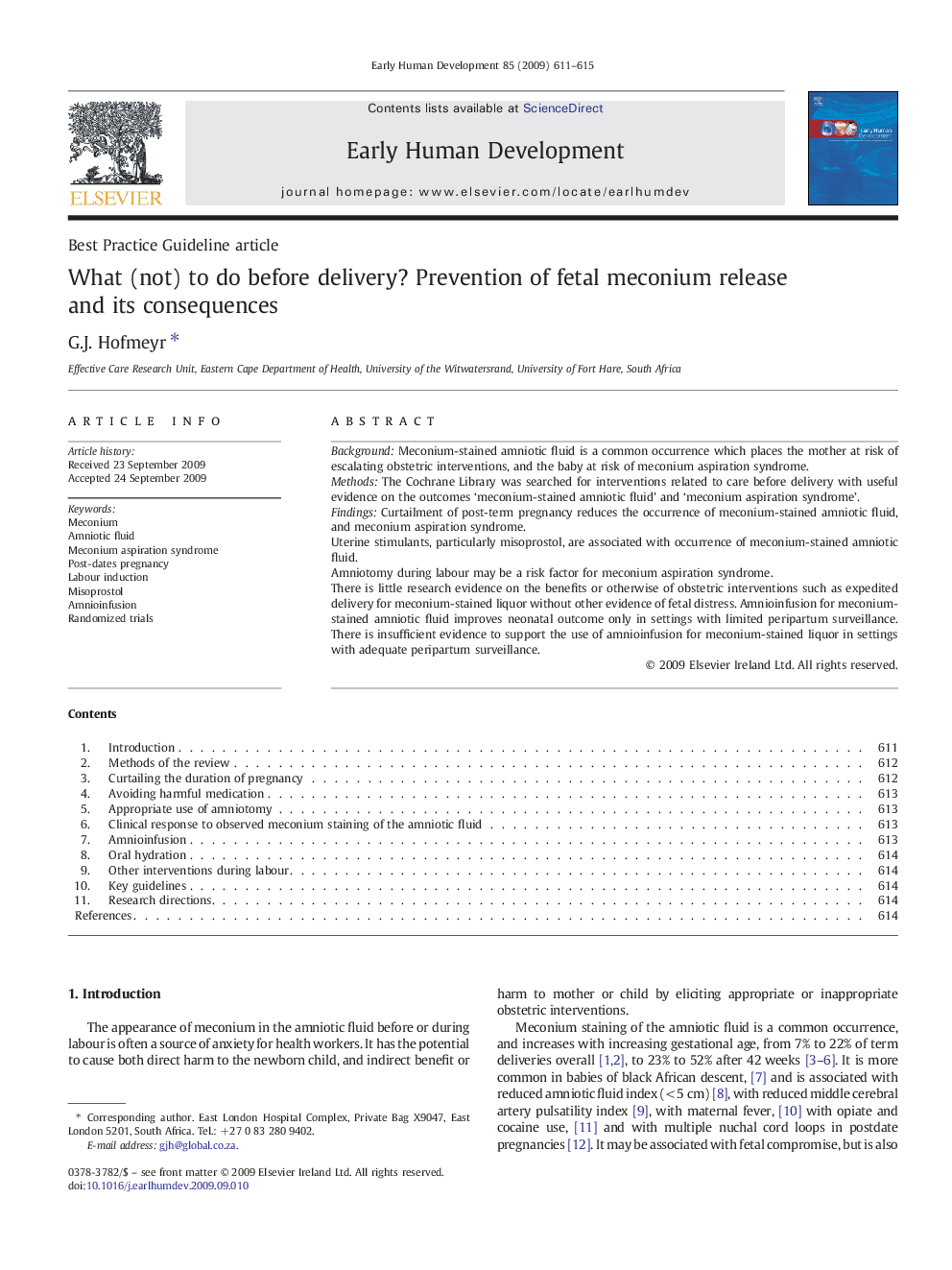| Article ID | Journal | Published Year | Pages | File Type |
|---|---|---|---|---|
| 3917996 | Early Human Development | 2009 | 5 Pages |
BackgroundMeconium-stained amniotic fluid is a common occurrence which places the mother at risk of escalating obstetric interventions, and the baby at risk of meconium aspiration syndrome.MethodsThe Cochrane Library was searched for interventions related to care before delivery with useful evidence on the outcomes ‘meconium-stained amniotic fluid’ and ‘meconium aspiration syndrome’.FindingsCurtailment of post-term pregnancy reduces the occurrence of meconium-stained amniotic fluid, and meconium aspiration syndrome.Uterine stimulants, particularly misoprostol, are associated with occurrence of meconium-stained amniotic fluid.Amniotomy during labour may be a risk factor for meconium aspiration syndrome.There is little research evidence on the benefits or otherwise of obstetric interventions such as expedited delivery for meconium-stained liquor without other evidence of fetal distress. Amnioinfusion for meconium-stained amniotic fluid improves neonatal outcome only in settings with limited peripartum surveillance. There is insufficient evidence to support the use of amnioinfusion for meconium-stained liquor in settings with adequate peripartum surveillance.
